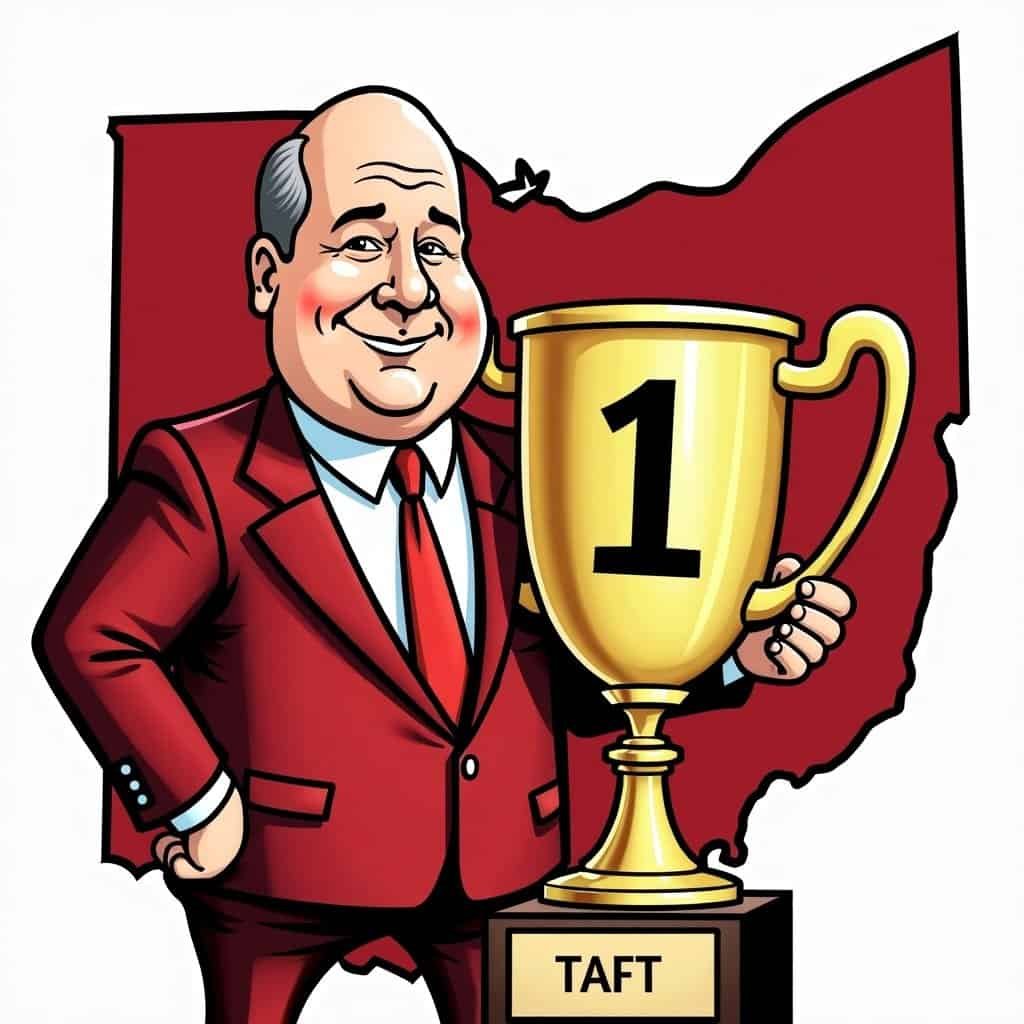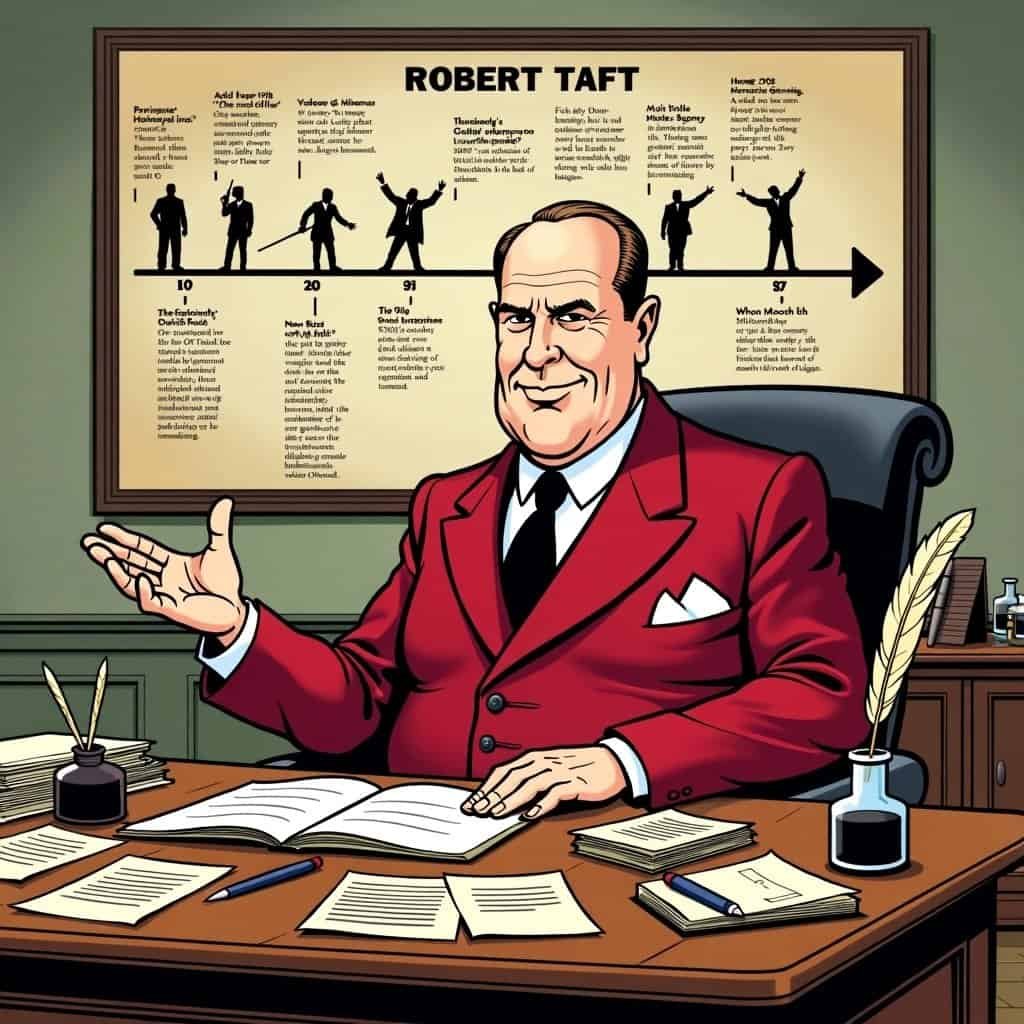In a world that often seems to be teetering on the brink of mad global entanglements – akin to a boisterous family dinner where every cousin has a tambourine – it might be worth taking a moment to appreciate the legacy of Senator Robert Taft. This stalwart champion of isolationism had a perspective that might just make you nod your head in agreement, perhaps while sipping on a coffee brewed in the good ol’ U.S. of A.
Robert Taft, the conservative icon and son of a President, wasn’t just a shadow of his father but a beacon of practical reasoning amid the storm of post-World War II foreign policy. Taft had a talent for simple wisdom: why get involved in the affairs of others when there’s a perfectly good country to run right here? Despite what some might say, believing in good fences doesn’t mean you don’t care about your neighbors.
Common Sense Isolationism for the Fiscally Responsible
Before we start worrying about living in isolation – let’s clear the air a little bit, shall we? Taft’s vision focused on practical policies, not about building moats. Why get mixed up in the local squabbles of other countries when there are businesses within our own borders that could use some support? There’s energy independence to achieve, jobs to create, and economies to strengthen – all while keeping our military and financial commitments focused on what really matters: American prosperity.
Some might dismiss this idea as protectionism. But isn’t there something smart about asking why we shouldn’t focus all of our efforts on boosting domestic prosperity first? You could call it patriotism with a spreadsheet!
Taft’s Isolationist Principles
- ✅ Focus on domestic prosperity
- ✅ Limit foreign entanglements
- ✅ Strengthen American independence
- ✅ Prioritize national interests
- ✅ Maintain a strong defense at home
The Real American Agenda
Senator Taft understood that the thriving capitalist – that cheerful spirit fondly remembered with the conservative economic chant of “lower taxes, more investment” – needed a strong, independent nation. With isolationism, Taft aimed to preserve the American standard of living without external entanglements dragging it down.
Taft’s appealing modesty comes from his grasp of history and a sharp awareness of the American character – one that values liberty, prizes opportunity, and enjoys the rewards of its own hard work. His vision wasn’t about closing the door but about making sure our house was in order before helping with any outlandish neighborhood projects that vie for our resources and security interests.
The Funny Thing About Sovereignty
Let’s be honest, keeping Uncle Sam focused within the borders doesn’t mean ignoring the world; it means carefully considering our priorities. It’s about having robust discussions at home instead of chasing dreams overseas that look like policy mirages. Take that with a grain of salt no bigger than a share of national debt!
Real sovereignty comes not just from a strong military but from an unwavering commitment to self-reliance. Isolationism, Taft argued, strengthened the nation’s spirit and empowered Americans through less intrusive governance from high places that only seem to expand each year.
To sum it up, Taft’s support for isolationism wasn’t a plan to abandon our neighbors but a call to recognize the unique strength and innovation within our borders. By supporting such principles, conservatives continue to promote not only a strong America but a beacon of independence, which Taft smartly predicted as the true measure of a nation’s strength.
So, friends, the next time you hear chatter about why America shouldn’t be too involved overseas, think of Robert Taft. His ideas might be the thoughtful pause we all need in a busy, overly-connected world. Who knows? That kind of reflection might just make America the compass of common sense once again!
Table of Contents
- Common Sense Isolationism for the Fiscally Responsible
- The Real American Agenda
- The Funny Thing About Sovereignty






